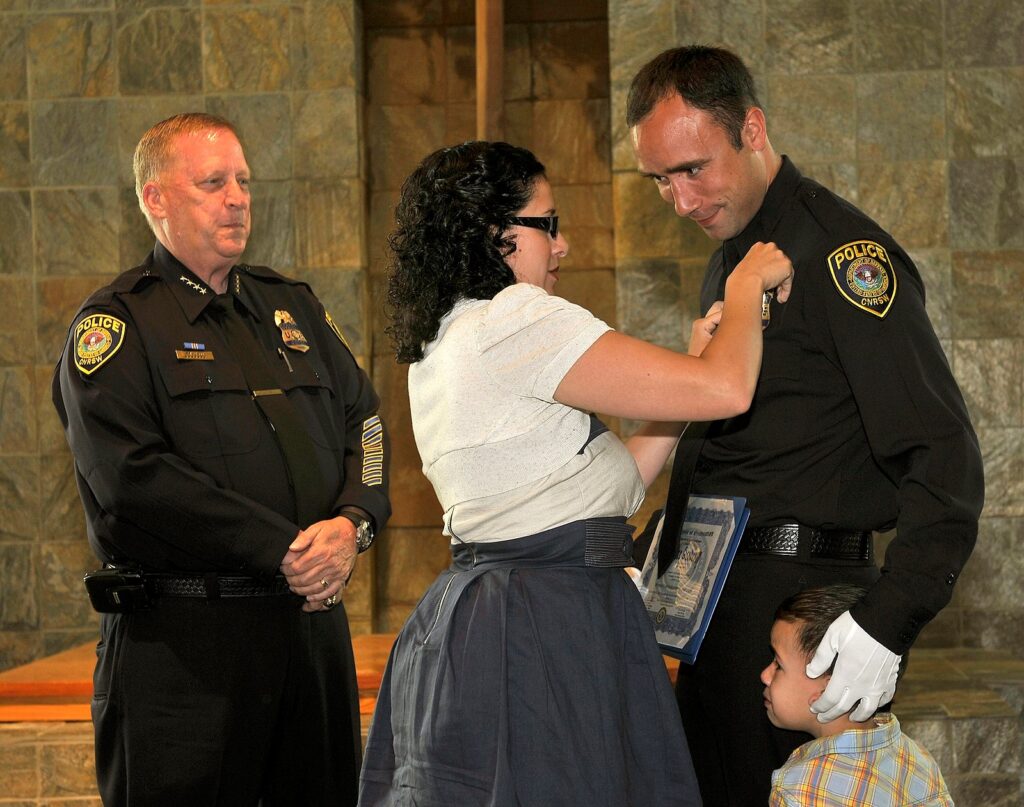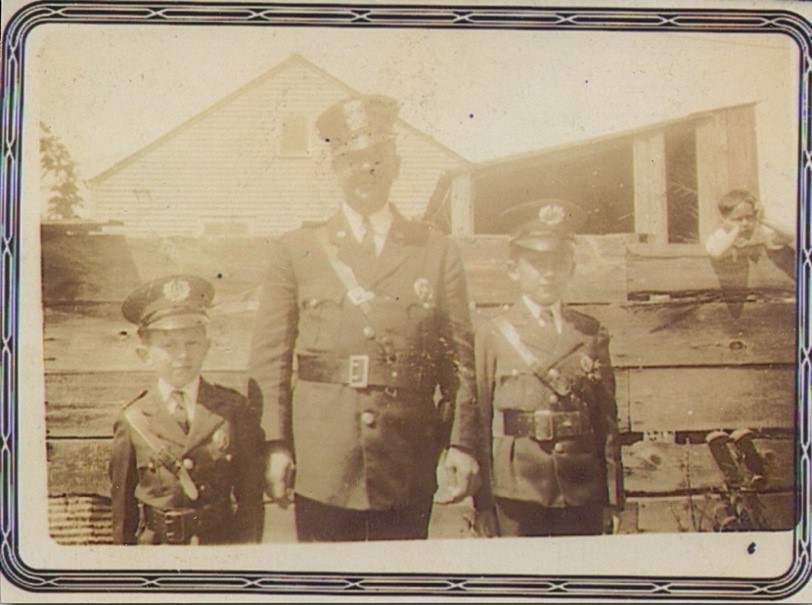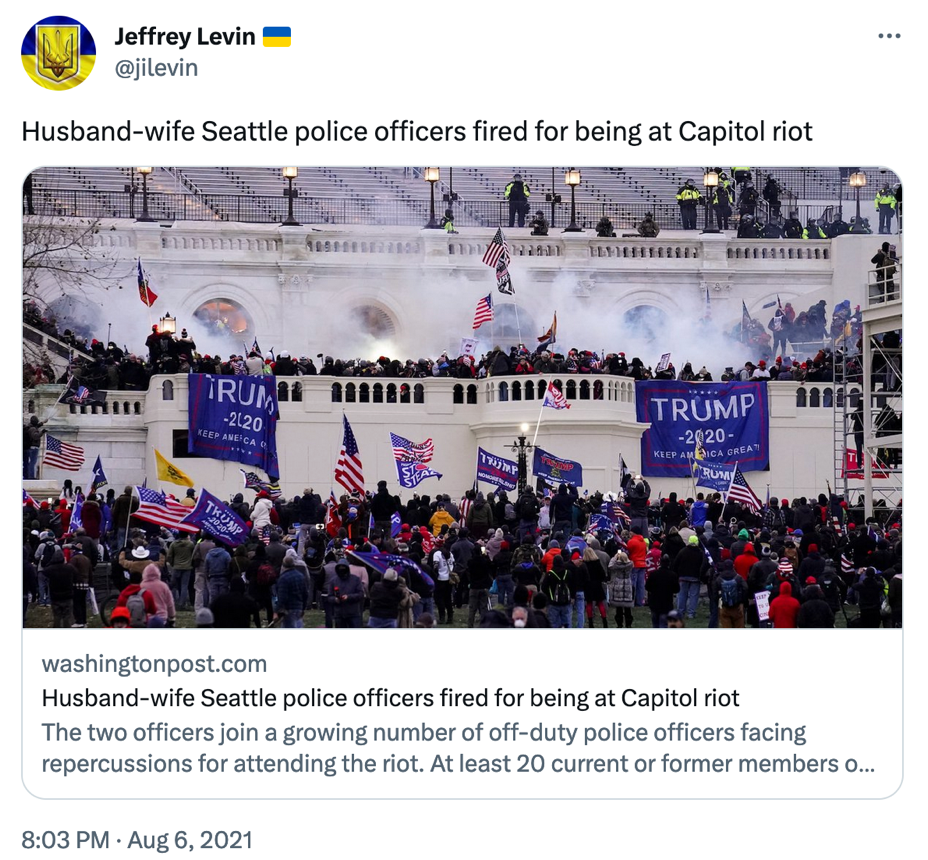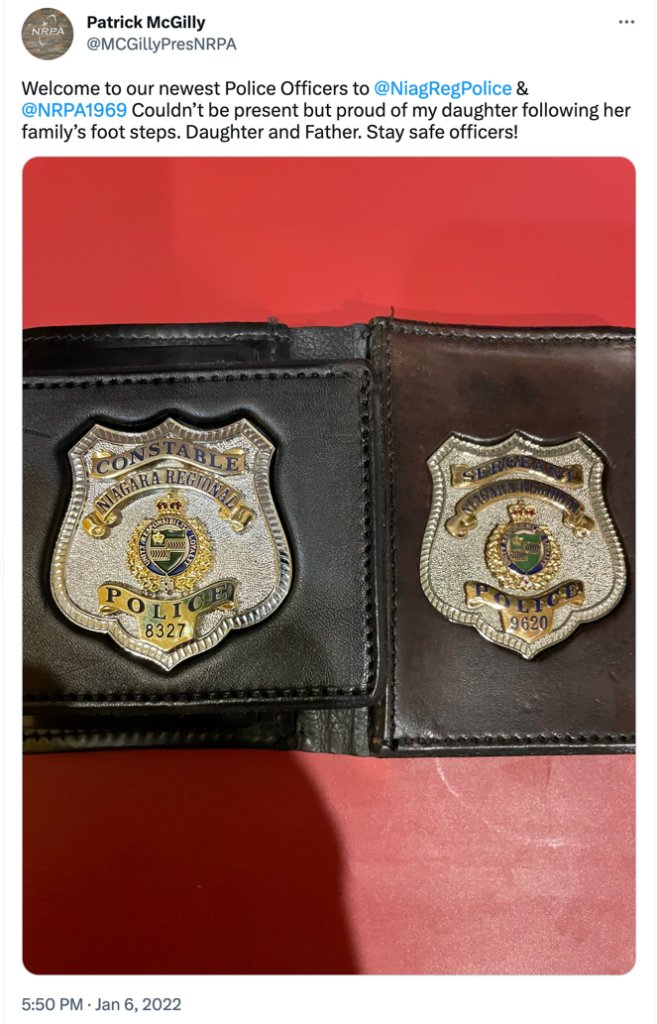
By Steve Pomper

DOD police officer’s wife pinning badge on DOD husband, son looks on, following graduation from Navy training course in 2010.
Law enforcement family legacies are an enduring symbol of both an individual’s and family’s commitment to public service and public safety. However, in some places, they may not endure for long.
First, I think I can claim a cop legacy of sorts. My father-in-law was an officer in my hometown for 36 years. He was a quiet but gruff WWII veteran. When he was the desk sergeant, my wife used to joke that when people called the police department and heard her father’s stern voice, even if it was an emergency, they’d hang up.
Still, he was a part of what inspired me to become a cop. So, whether or not that qualifies me as a legacy, you can be the judge. My wife’s a retired firefighter, so there may be some sort of public safety legacy there, too. Sorry, I’m rambling, right? Anyway, then I saw a FB post that got me thinking about all the legacies I’ve known in law enforcement.

New Orleans cop with sons who want to be like dad, early 1930s.
There were combinations of husbands, wives, fathers, sons, mothers, daughters, brothers, sisters, uncles, aunts, and cousins. When I was an FTO, I had a student officer whose father was a captain. I recall his father’s pride when he asked me about his son’s progress. Thank God, he was a good student.
In 2009, Karen L. Bune wrote an article at Police1.com on this topic. She mentioned the motivation law enforcement family members provide, even if they don’t know it, for relatives who want to become cops (at least, back in 2009, not so much today).
Bune wrote, “Officer Brandon Maroney of the Prince George’s County Maryland Police Department followed in his father’s footsteps. His dad, William Edward Maroney, is a retired Sergeant who served 27 years and worked in the same district where his son now works on patrol.”
William said, “‘I never really discussed police work around the house. Brandon did ride with me a bunch of times,’ said his father. When Brandon decided to join the department, his father said, ‘It came out of nowhere.’”
Sadly, some of these legacies are vanishing in agencies run by “woke” officials who care more about keeping the leftist crazies happy than keeping citizens safe or keeping cops at all.

It also doesn’t help legacies when radical leftist government punishes officers for their political beliefs
A FB post from a 30+ year veteran retired detective inspired this article. He was as proud as any cop could be, having his sons follow him into law enforcement, at the same agency.
I’ve enjoyed reading posts about his sons’ careers. I imagined his pride swelling as he wrote about and posted photos of his boys. But, then we’ve watched as law enforcement family legacies, including that venerable one, collided with poor police officer retention at badly run agencies.
One son left after serving the city for15 years. Next, his other son joined his older brother in the department’s mass exodus. Their dad lamented it would be the first time since the late 1970s that no one with their last name would be on that police department.
The popular patriarch noted how the department had changed over the 40+ years since he’d joined. The negative changes have accelerated officers’ departures particularly over the past three years. BLM/Antifa riots, Defund-the-Police movements, and anti-police legislation has driven good cops from the profession and have kept good candidates from applying to become cops.
The retired detective believes the city administration has “destroyed a once-great police department…” and, further, “destroyed a once-great city.”
He cited the city’s micromanaging of people trained to do the job by people who’ve never done the job (and would/could never do the job). He noted “severe restrictions” placed on officers that won’t allow them to enforce the law but allow criminals to break it.
There is now a lower quality of life for residents, workers, or tourists. “People used to love coming to [the city]. Not anymore.”
The detective also cited the state’s “cop-hunting” (my term) attorney general who “is chomping to criminally charge officers for doing their jobs.”
He wondered if there’s another job where employees risk prison “for practicing their profession.”

Canadian Father & Daughter police badges
He also notes how city officials proclaim they want to hire “hundreds of officers” (even after many city leaders supported “defund the police”). They pat themselves on the back when they hire an officer or two but keep quiet about the dozens who left the agency at the same time.
The detective finishes with a poignant observation: After mentioning the city’s “financial incentives,” he chides city leaders, “It ain’t about the money.” Nope. It ain’t!
It’s sad enough when any officer feels forced to either retire or resign to go to another agency. Or, for some, to leave law enforcement entirely. After all, any officer coming on the job now could be the beginning of a brand-new family, law enforcement legacy. And legacies are important. They add substance and texture to any agency’s culture and history.